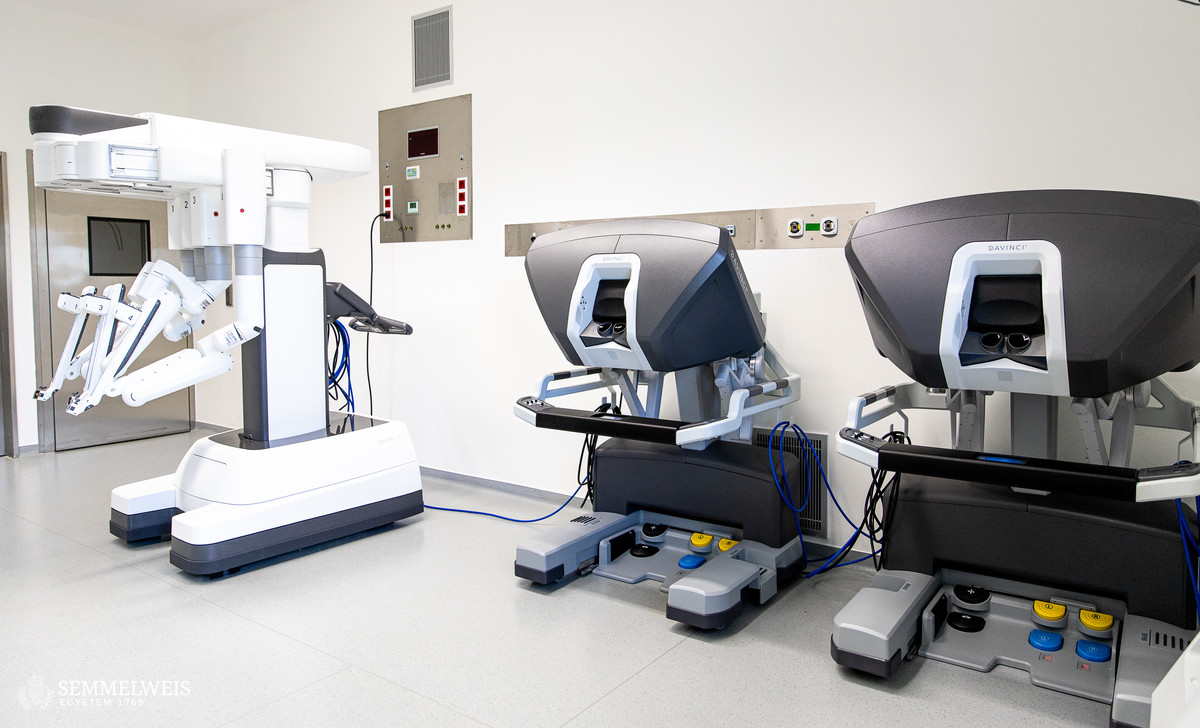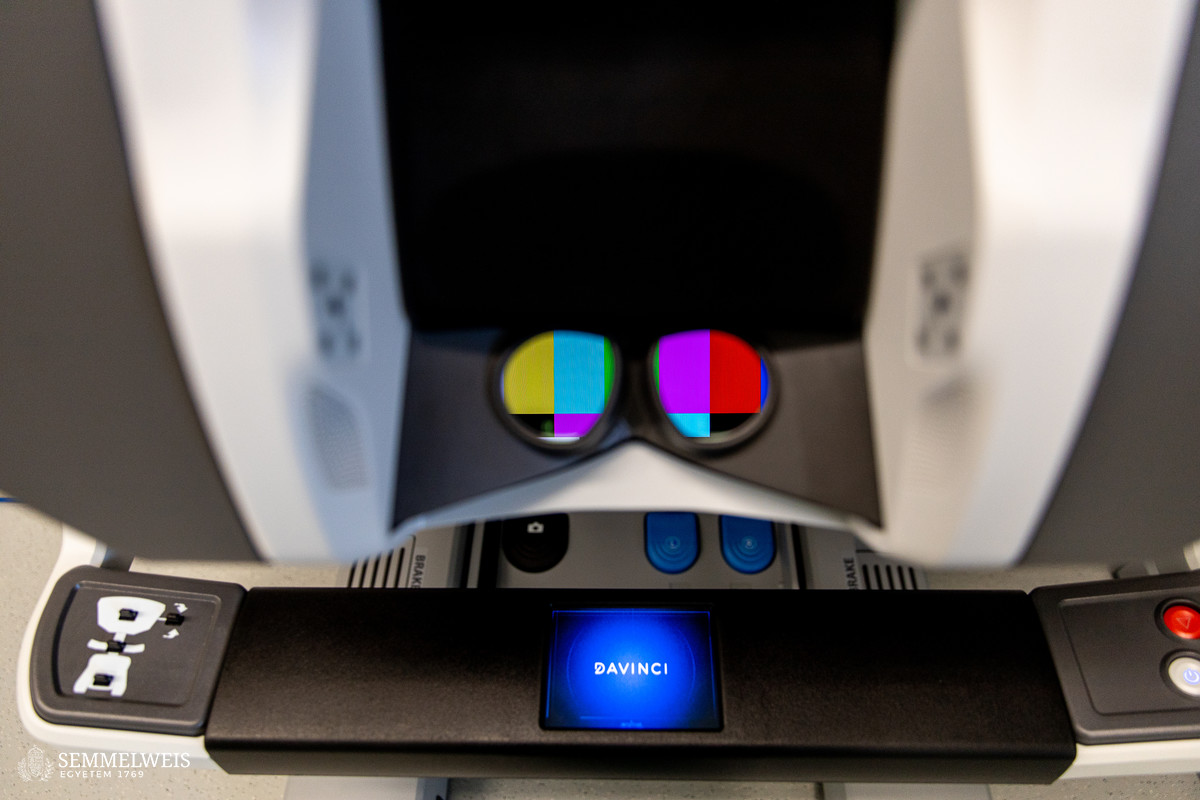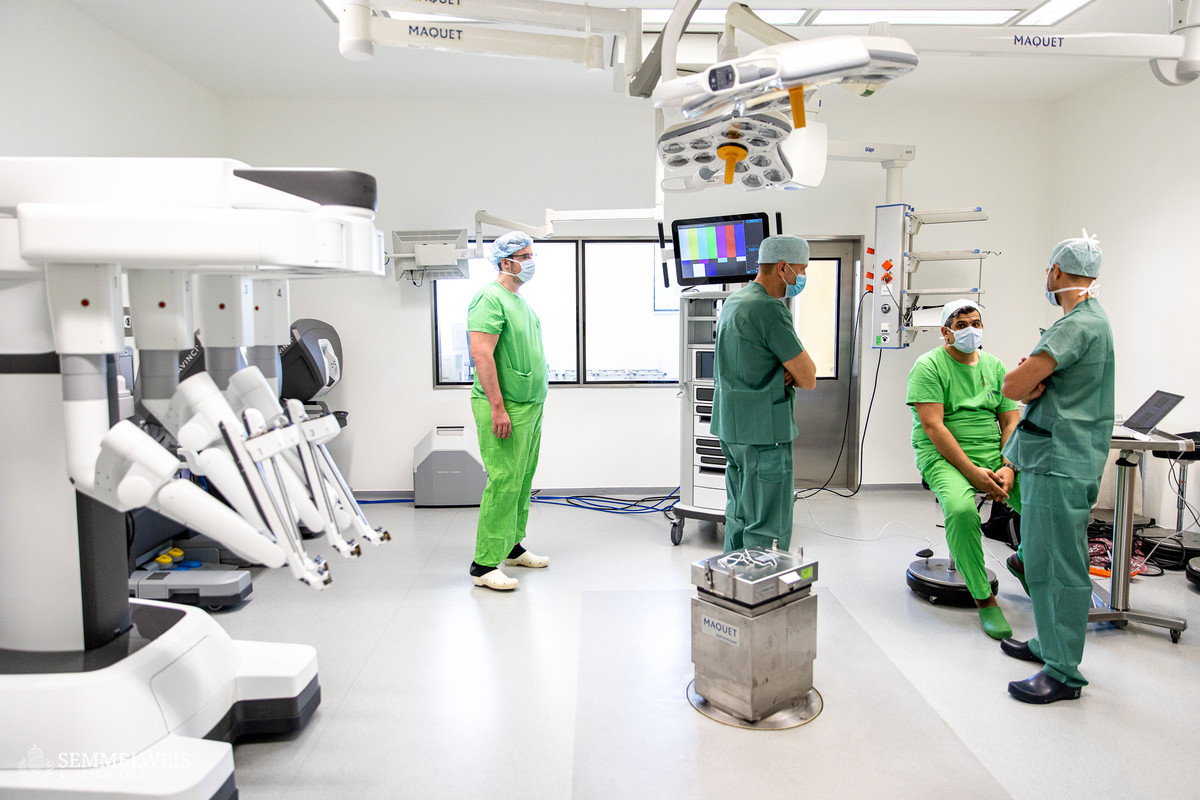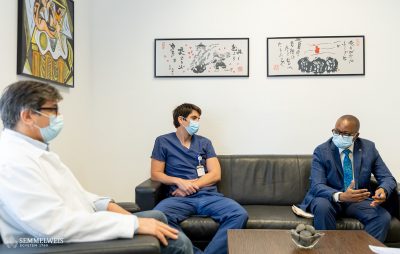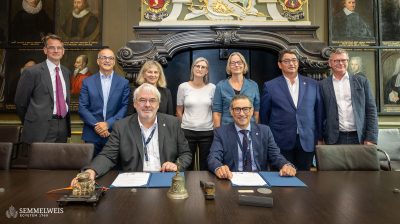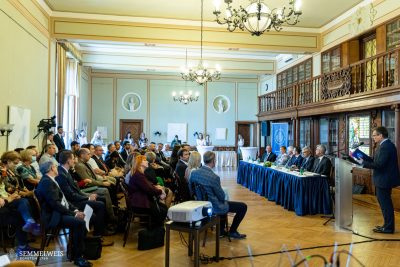“Participants of the Hamburg program could be the first medical students from Hungary to have hands-on experience with the state-of-the-art Da Vinci robotic surgical device, in an institution with years of experience with the system,” Rector Dr. Béla Merkely told our website. At the invitation of Semmelweis University’s Hamburg campus, two Hungarian, two English and two German students, so six medical students in total will participate in the intensive, small-group, 10-day simulation-based basic training course.
The successful candidates can be present during the surgeries, directly by the side of the operating doctor, getting both practical and theoretical experience. Dr. Béla Merkely emphasized that the application is particularly recommended for students who envisage their future as a surgeon and are interested in urology, gynaecology and abdominal surgery. “It is an advantage if the student already has some basic surgical knowledge, for example doing a TDK or writing a thesis in this field,” he added.
“The surgical professors at our Hamburg campus strongly believe that the development of robotic surgery will accelerate more than we can currently imagine,” said the rector following his visit to the Asklepios Campus Hamburg, adding that this is why training the future generation of doctors in this field is extremely important. That is the reason why Semmelweis University has recently acquired a Da Vinci Xi surgical robot, which is not only suitable for surgery, but also offers the possibility of education and training, thanks to its two-console solution. As we earlier reported, the first successful surgeries had already been performed with this device, which was officially handed over on 25 June.
“During the training in August, participants will be able to acquire both theoretical and practical knowledge of the device, which enables precise manoeuvring,” Dr. Alpár Alán, Vice Rector for International Training said. He added that after learning the theoretical basics, students will also learn the basic movements and grips associated with the robotic surgical system. At the end of the training students will receive a certificate. Based on this certificate, Semmelweis University will count the completion of the training towards their surgical internship. During the summer school, the aim of the participants is to acquire as many skills and knowledge as possible.
“ACH is part of the Faculty of Medicine at Semmelweis University. The relationship between the two institutions can be described as a harmonious and fruitful cooperation,” Dr. Alán Alpár said.
A similar program has already been successfully run in Germany. Dr. Karl J. Oldhafer, head physician and Dean of ACH said that students from Hamburg have already participated in a 18-session training program but this opportunity is new, as students from Budapest are welcome to attend a summer school for the first time. He added that they have two Da Vinci robotic surgical instruments at one clinic each. In the mornings, students will be able to observe in person how a surgical robot operation is carried out. In the afternoons, they will have the opportunity to learn how to operate the device directly from the console, with the support of the simulator software. Dr. Karl J. Oldhafer emphasized that the aim of the program is to familiarize future doctors with this modern robotic technology as soon as possible. After all, he said, just like in sports, the more they practice, the more professional they become in the field.
The training itself is free of charge. Accommodation and travel costs are covered by the university. Participants are selected on the basis of a short motivation letter and an introduction at Semmelweis University. Applications should be sent to the Centre for International Student Training at titkarsag.kht@semmelweis-univ.hu. The application deadline is 7 July 2022, 20:00. Applications will be evaluated and assessed by a designated committee the following day. The six selected students will be invited to attend a Zoom meeting on 11 July, where Dr. Karl J. Oldhafer will provide further information.
Ágnes Barta, Pálma Dobozi
Translation: Rita Kónya
